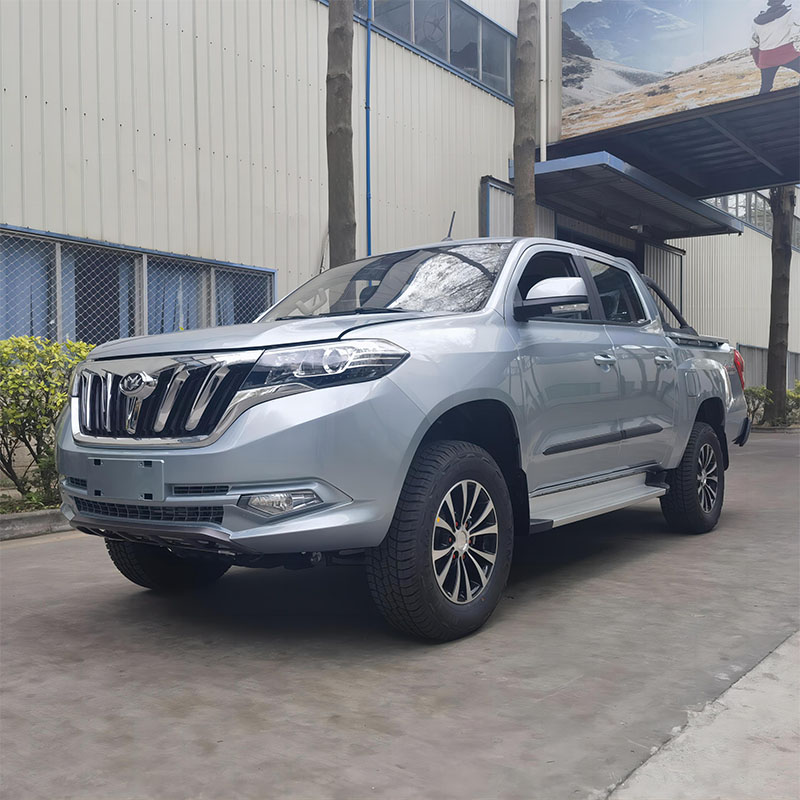The Rise of Electric Pickups: Power, Performance, and Sustainability
2024-07-22
In recent years, the automotive industry has witnessed a significant shift towards electrification, and one of the most exciting developments is the emergence of electric pickup trucks. These vehicles are not only challenging the traditional dominance of gasoline and diesel trucks but also redefining the standards for power, performance, and sustainability. In this blog, we'll explore the key factors driving the rise of electric pickups and what the future holds for these remarkable vehicles.
Power and Performance
Electric pickups are proving that they can deliver the same, if not better, performance compared to their internal combustion engine (ICE) counterparts. One of the standout features of electric trucks is their instant torque delivery. Unlike ICE vehicles, electric motors provide maximum torque from zero RPM, resulting in rapid acceleration and impressive towing capabilities. For instance, the Rivian R1T boasts a 0-60 mph time of just 3 seconds, while the Tesla Cybertruck offers up to 14,000 pounds of towing capacity.
In addition to acceleration and towing, electric pickups also excel in off-road performance. Many models come with advanced all-wheel-drive systems, adjustable air suspensions, and rugged durability designed to handle the toughest terrains. This makes them ideal for adventure enthusiasts and professionals who need a reliable and powerful vehicle for off-road tasks.

Sustainability
One of the most compelling reasons to consider an electric pickup is its environmental impact. Traditional pickup trucks are known for their high fuel consumption and emissions, contributing significantly to air pollution and climate change. In contrast, electric pickups produce zero tailpipe emissions, significantly reducing their carbon footprint.
Moreover, as the electricity grid continues to incorporate more renewable energy sources, the overall environmental benefits of electric vehicles (EVs) will increase. Charging an electric pickup using solar or wind power can further reduce greenhouse gas emissions, making these vehicles a crucial part of the transition to a more sustainable future.
Cost Efficiency
While the initial purchase price of an electric pickup may be higher than that of a conventional truck, the long-term savings can be substantial. Electric vehicles typically have lower maintenance costs due to fewer moving parts and less wear and tear on components. Additionally, the cost of electricity is generally lower than gasoline or diesel, leading to significant savings on fuel.
Government incentives and rebates for EV purchases can also help offset the initial cost, making electric pickups more accessible to a broader range of consumers. As battery technology continues to improve and economies of scale drive down prices, the cost efficiency of electric pickups is expected to become even more attractive.
The Future of Electric Pickups
The future of electric pickups looks incredibly promising, with several major automakers and startups investing heavily in this segment. Companies like Ford, Chevrolet, and GMC have already introduced or announced electric versions of their popular pickup models. The Ford F-150 Lightning, for example, has generated substantial buzz with its innovative features, including the ability to power a home during an outage.
As battery technology advances, we can expect to see improvements in range, charging speed, and overall vehicle performance. Wireless charging, solid-state batteries, and increased charging infrastructure are just a few innovations on the horizon that will enhance the appeal and practicality of electric pickups.
Conclusion
Electric pickups are more than just a trend; they represent a significant leap forward in automotive technology. Combining power, performance, and sustainability, these vehicles are set to play a crucial role in the future of transportation. Whether you're an off-road enthusiast, a professional needing a reliable workhorse, or someone looking to reduce their carbon footprint, an electric pickup might just be the perfect vehicle for you.


